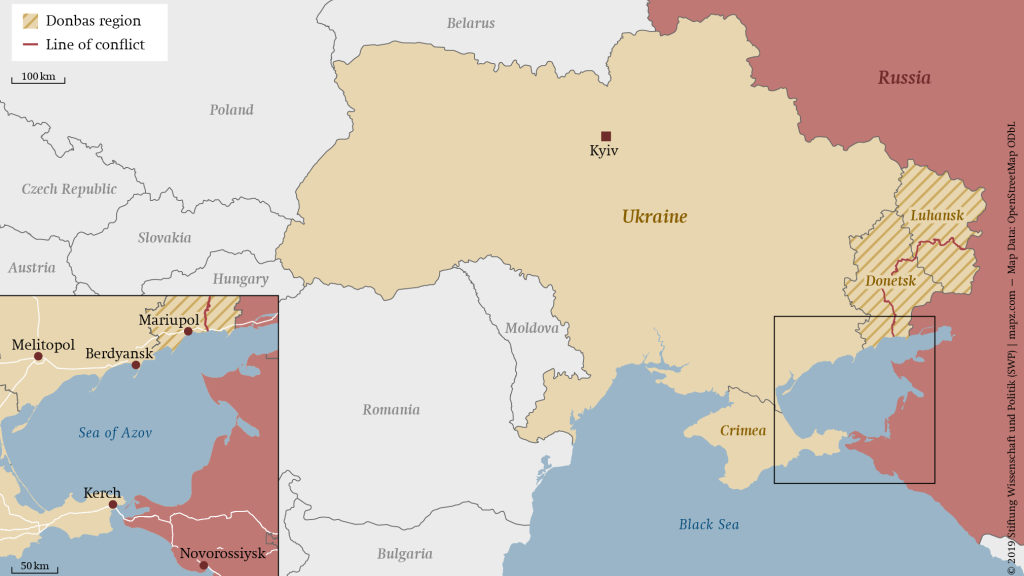The Donbass in 2014: Ultra-right threats, working-class revolt, and Russian policy responses

This article was originally published in 2016, in a special issue of the journal International Critical Thought (vol. 6, no. 4) that addressed the topic of “Russia, Ukraine and Contemporary Imperialism”. Republication offers me a chance to revisit the views I held on the Donbass struggle in 2015, when the article was written. At the time, my key conclusion was that the revolt in Ukraine’s easternmost provinces against the new right-wing nationalist government in Kyiv had strong roots among the working people of the Donbass region. The revolt was not the outcome of intervention by outside forces, whether the Russian government or freelancing Russian-nationalist adventurers; it was a spontaneous, popular rebellion around issues of regional self-determination and ethno-linguistic identity, also featuring an important strain of class-based resistance to neoliberal policies foreshadowed by the new central authorities.
As such, the revolt seemed to me to be progressive in essence, and to require the support of the global left. Years later, I believe this view was correct. Meanwhile, the uprising was an enormously contradictory phenomenon, unfolding in generally adverse circumstances that made its healthy long-term development next to impossible. Good people don’t always win, and so it was in the Donbass. But to focus exclusively on the errors and shortcomings of the Donbass militants, without acknowledging the presence of a living popular struggle, would be a grave error.
As we know, the Donbass war that began in 2014 has not ended to this day. The struggle for regional self-determination, at least, remains alive. It is significant that in today’s Donbass, a great deal of the toughest infantry fighting on the Russian side is being carried out not by Russian troops, but by the local militias of the Donetsk and Lugansk People’s Republics. For these people, and clearly for very large numbers of other residents of the breakaway region, any possibility of a return to Ukrainian rule is something to be bitterly resisted.
A further theme of this article, seemingly contentious but with a strong factual base, has to do with the ambivalent attitude of the Russian authorities toward the Donbass struggle, especially in its early stages. This attitude in the Kremlin appears to have stemmed mainly from the characteristic caution, well known to scholars, with which Moscow has traditionally conducted its foreign policy. The Russian leaders initially showed little interest in supporting the Donbass militants, and Moscow’s decision to provide them with significant military aid came as a relatively late development.
For years, caution and restraint were to remain hallmarks of Russian policy toward the Donbass and Ukraine, despite escalating pressures and provocations from Kyiv and its Western backers. Within months of the signing of the Minsk II cease-fire agreement in February 2015, it was clear that the Ukrainian government had no intention of allowing the provisions of the agreement to go into effect. Significantly, the Russian authorities during the next few years did not respond militarily to intensive Ukrainian shelling of populated areas of the Donbass. This was at a time when Ukraine’s armed forces remained weak, and when their resistance to a direct Russian intervention could have been little more than nominal. Moscow’s patience endured through to late 2021, when President Vladimir Putin and his advisors appear to have decided that war with Ukraine had become unavoidable.
The assessments I made in this article have not all been borne out. A clear error was my suggestion that the main European NATO powers, if not the US, would show no stomach for the risks involved in incorporating Ukraine into the Western military alliance. But by 2021 Ukrainian membership in NATO had become a de facto reality, with major joint military exercises being held on Ukrainian territory. The Ukrainian command was by this time closely integrated with NATO structures, and modern Western weapons were streaming across the Ukrainian border. To suppose that imperialists will refrain from practising imperialism, we should reflect, is to make a very big gamble indeed.
Download the article (PDF) here or read it below